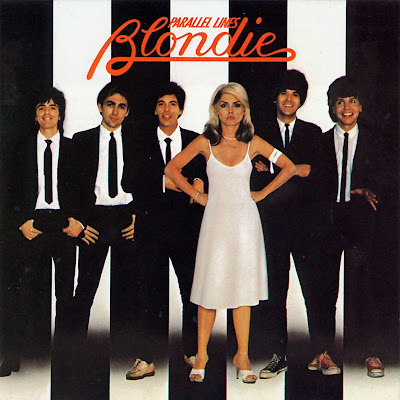
Blondie started as an ironic update of trashy 1960s pop. By the end of the 1970s, however, they were far and away the most commercially successful and adventurous survivors of the New York punk scene, with three platinum albums (Parallel Lines, Eat to the Beat, and Auto American). In bleached-blond lead singer Deborah Harry, new wave's answer to Marilyn Monroe, the group had an international icon. The group's repertoire, written by Harry and boyfriend Chris Stein, inhabited the melodic side of punk and grew increasingly eclectic while Harry's deadpan delivery remained consistent.
Born in Miami, Harry was adopted at age three months by Richard and Catherine Harry. She grew up in Hawthorne, New Jersey, and after graduating from high school moved to Manhattan. Harry joined a folk-rock band, the Wind in the Willows, which released one album for Capitol in 1968; she worked as a beautician, a Playboy bunny, and a barmaid at Max's Kansas City. In the mid-1970s she became the third lead singer of a glitter-rock band, the Stilettoes, which also included future Television bassist Fred Smith. Stein, a graduate of New York's School of Visual Arts, joined the band in October 1973, and he and Harry reshaped it, first as Angel and the Snakes, then as Blondie.
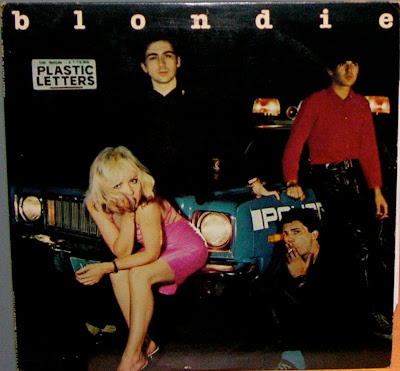
By 1975 the band was appearing regularly at CBGB, home of the burgeoning punk underground. Its first single, "X Offender," was independently produced by Richard Gottehrer and Marty Thau, who sold it to Private Stock. The label released Blondie's debut, also produced by Gottehrer, in December 1976. The group expanded its cult following to the West Coast with shows at L.A.'s Whisky-a-Go-Go in February 1977 and opened for Iggy Pop on a national tour. A few months later, they made their British concert debut. In July Gary Valentine (who wrote "[I'm Always Touched by Your] Presence Dear," a 1978 U.K. Top 10 hit) left the band to form his own trio, Gary Valentine and the Know, which broke up in spring 1980. In early 1978 Blondie's "Denis" hit Number Two in the U.K.
After one album for Private Stock and some legal wrangling, Blondie signed with Chrysalis in October 1977. Mike Chapman, a veteran of glitter pop, produced Parallel Lines, which slowly made its way into the Top Ten, breaking first in markets outside the U.S. The disco-style "Heart of Glass" hit Number One in April 1979 and established the group with a platinum album. Blondie maintained its popularity and dabbled in black-originated styles, collaborating with Eurodisco producer Giorgio Moroder for the American Gigolo Soundtrack ("Call Me," Number One, 1980), covering the reggae tune "The Tide Is High" (Number One, 1980), and writing a rap song, "Rapture" (Number One, 1981), on Autoamerican (Number Seven, 1980). Harry also did the rounds as a celebrity, including an endorsement of Gloria Vanderbilt designer jeans in 1980.

As the group's success continued, there were reports that Stein and Harry were asserting more control; by 1981 some Blondie backing tracks were played by session musicians under Stein's direction. Burke produced the New York band Colors, and Destri released a solo album, Heart on a Wall, in 1982. In 1981 Harry released her solo KooKoo (Number 25). Produced under the direction of Chic's Bernard Edwards and Nile Rodgers, KooKoo went gold.
Harry also began acting, appearing off-Broadway in Teaneck Tanzi: The Venus Flytrap (1983), in the films Union City (1979), Videodrome (1982), and John Waters' Hairspray (1988), in the television series Wiseguy, and in Showtime's Body Bags.
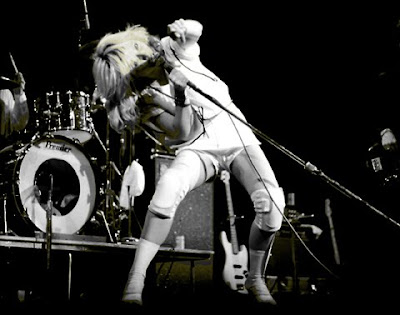
Early in 1982 Infante brought suit against the group, claiming they were out to destroy his career by excluding him from group meetings, rehearsals, and recording sessions. The suit was settled out of court and Infante remained in the band. However, by late 1982, following a disastrous tour (Blondie was never known as a great live act), the group quietly disbanded.
Harry and Stein's planned vacation from the music business stretched to a couple of years after he was felled by a rare genetic illness called pemphigus. By 1987, their romantic relationship had ended. Harry's comeback momentum was again stalled in the mid-1980s by legal problems with the group's label, Chrysalis. Rockbird (Number 97, 1986) drew critical raves, but neither it nor her subsequent releases have approached Blondie's in sales or acclaim, although she has had major hits in the U.K. ("French Kissin' in the U.S.A.," Number Eight, 1986, and "I Want That Man," Number 13, 1989). She sang a duet with Iggy Pop, "Well, Did You Evah!," on the AIDS benefit album Red Hot + Blue. Harry collaborated with New York underground group the Jazz Passengers and appeared on their 1996 album Individually Twisted (32 Records).
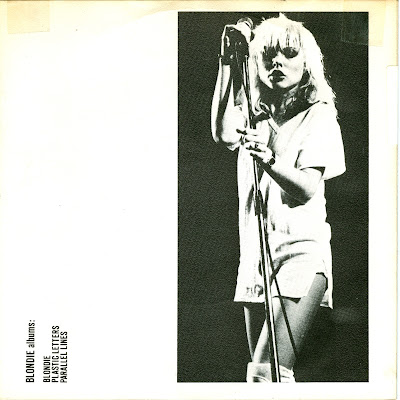
Harrison and Burke joined a group called Checquered Past, which included ex–Sex Pistol Steve Jones. Later Harrison supervised the music for several feature films, including Repo Man, before becoming an A&R man for Capitol and Interscope. In the early 1990s Burke became one of the Romantics and worked as a session musician with the Plimsouls, Dramarama, and Mark Owen. Stein continued producing acts for his Animal Records label, and Destri began producing.
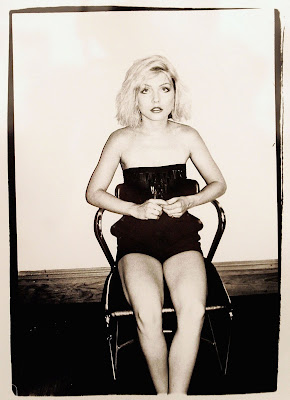
In 1998 Blondie had something of a resurgence as Harry, Burke, Stein, and Destri reunited for No Exit (Number 18, 1999), Blondie's seventh studio album. No Exit, which contains an appearance by rapper Coolio on the title cut and yielded the poppy "Maria" (Number 82) engendering a new generation of Blondie fans. In early 1999 the band launched a U.S. tour — its first in over 15 years — and recorded a live album. Meanwhile, ex-members Infante and Harrison filed a lawsuit in the summer of 1998 over the use of the Blondie name and royalties. In a separate legal case, Blondie sued former-label EMI for breach of contract, claiming EMI refused to pay the group proper royalties for albums recorded from 1977 to 1982 — a payment plan was agreed upon in 1996.
The group's catalog was reissued in 2001; each disc was expanded with demos, live tracks and covers. In 2003, the group released The Curse of Blondie (Number 160), its eighth studio album, and continued to tour, but relations between past and present Blondie remain tense: When Infante and Harrison appeared at the band's 2006 induction into the Rock and Roll Hall of Fame, Harry dismissed them onstage, saying "Can't you see my real band is up there?"
Harry remains the most active member of Blondie, releasing another solo album, Necessary Evil, and appearing in a number of independent films. She also traveled with the True Colors tour in 2007.
Blondie One Way Or Another Live Midnight Special 1979
Blondie - Sunday Girl 1979
Blondie - The tide is high
Blondie - Heart Of Glass (Live 1982)
Blondie Discography - Studio Albums
1976 - Blondie - Released: December 1976
1977 - Plastic Letters - Released: October 1977
1978 - Parallel Lines - Released: September 1978
1979 - Eat To The Beat - Released: October 1979
1980 - Autoamerican - November 29, 1980
1982 - The Hunter - Released: June 5, 1982
1999 - No Exit - Released: February 23, 1999
2003 - The Curse Of Blondie - Released: October 13, 2003
Wiki info can be found here --> http://en.wikipedia.org/wiki/Blondie_%28band%29
Rock On Music Lovers!!
-Stereo
If you liked this article then make sure you subscribe to the feed via RSS
It's Free. You can also follow me on Twitter too!
Check out the Retro Rebirth Design Catalog


No comments:
Post a Comment